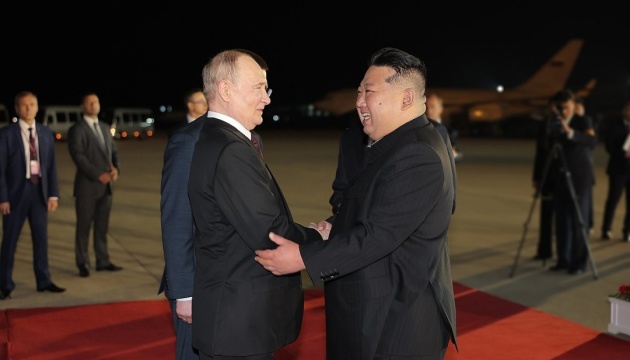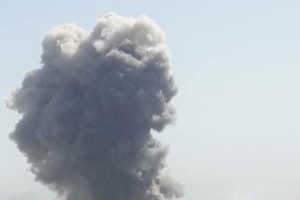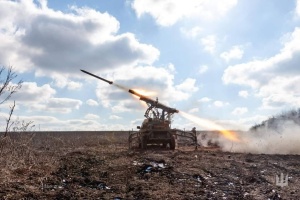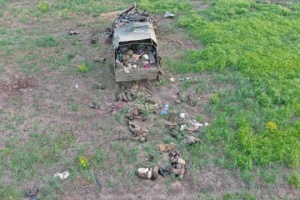
Explaining complex things in simple words: Russian 'axis of evil', Russian war crimes, Ukrainian asylum seekers
Ukrinform
The Center for Strategic Communication and Information Security pursues efforts to provide a brief explanation to foreign audiences on the current topics of particular interest as regards Ukraine.
RUSSIAN “AXIS OF EVIL”
Russian dictator Putin, during his stay in DPRK, signed an agreement on a comprehensive strategic partnership.
- Russia has finally undermined international efforts aimed at isolating the North Korean regime, crossing out the resolutions of the UN Security Council, for which it voted itself.
- There is no longer a taboo for Moscow to cooperate with totalitarian dictatorships, international aggressors and radical terrorists. Russia is uniting “dark forces’’ to oppose the world order based on international law and UN principles.
- Moscow's alliances, based on subordination and loyalty, are disintegrating (an example is the distancing of Armenia from the CSTO). States that do not have aggressive or invasion plans are not on the road with the Russian Federation.
- Moscow's new alliances are communities of aggressors and destroyers of the international order, political regimes that have found themselves in isolation and flaunt their disdain for the values of human civilization.
- The modern Russian Federation imitates Hitler's Germany, which also built alliances directed against the democratic world.
RUSSIAN WAR CRIMES
Prosecutor General Andriy Kostin announced that the identity of the Ukrainian soldier who was beheaded by the occupiers in the Donetsk region has been established. The Russian commanders responsible for this war crime have also been identified.
- The flow of reports about massacres of prisoners by the invaders is constantly increasing. Crimes are recorded during aerial reconnaissance. Russians often flaunt executions themselves, posting photos and videos on the network.
- According to the Prosecutor General Office, recently, representatives of one of the units of the Russian Federation occupation forces in the Volnovakha district of the Donetsk region ordered their subordinates not to capture AFU soldiers but to behead them.
- These are not random and isolated excesses. The military command of the Russian Federation supports a culture of permissiveness regarding war crimes committed by subordinates on the battlefield in Ukraine.
- Despite all the Russian atrocities, defenders of Ukraine adhere to international humanitarian law and do not take revenge on the enemy using his methods.
- Russian war crimes will not go unpunished. Ukrainian and international investigators are working on the identification of Russian thugs to further bring them to strict liability.
UKRAINIAN ASYLUM SEEKERS
June 20 is World Refugee Day, established by the United Nations to draw attention to the rights, needs and interests of people forced to flee their homes to escape armed conflict or persecution.
- Currently, there are approximately 6.3 million Ukrainian asylum seekers from the war. Another 3.6 million are internally displaced persons (IDPs). Ukraine is among the world leaders in terms of the number of people who have been forced to leave their places of permanent residence.
- The only reason that forces Ukrainians to become IDPs or go abroad is Russian aggression. The Russians systematically destroy the cities and villages of the front-line zone, terrorize other populated areas of Ukraine with missiles, and make the lives of those who remained under occupation unbearable.
- The flight and mass displacement of Ukrainians are accompanied by many individual tragedies, and all of them together cause significant demographic and economic damage to Ukraine.
- We are grateful to foreign countries that sheltered Ukrainians, provided them with assistance, and took care of psychological rehabilitation and social adaptation in new conditions.
- At the same time, despite the dangers associated with the continuation of Russian armed aggression, our citizens are returning to Ukraine. We learned to live and work in war conditions. Not abroad, but precisely here, in the Motherland, where its citizens are most needed.
Center for Strategic Communication and Information Security




